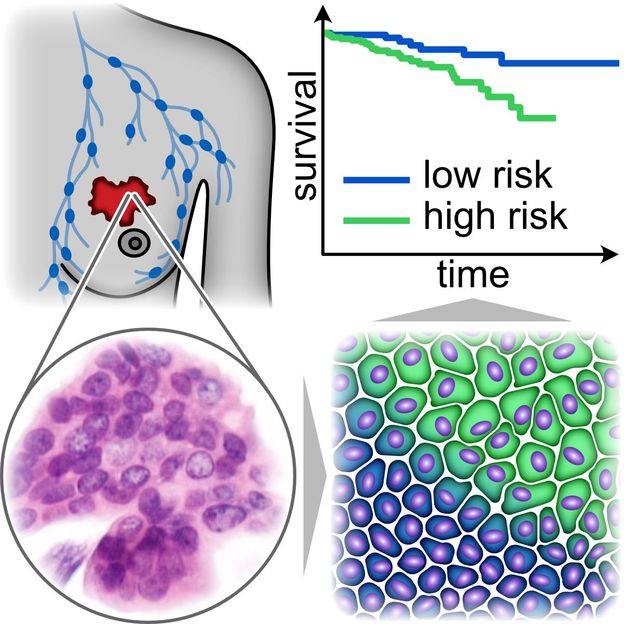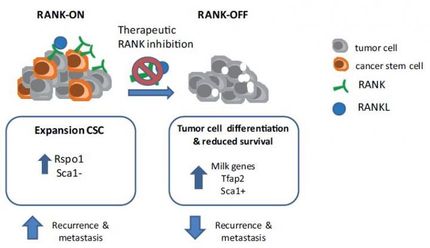Heparin-like compounds inhibit breast cancer metastasis to bone
Researchers from VTT Technical Research Centre of Finland have in collaboration with the University of Turku, Indiana University and two Finnish companies, Biotie Therapies Corp. and Pharmatest Services Ltd, discovered a novel mechanism regulating the development of breast cancer bone metastases and showed that heparin-like compounds can potentially be used to inhibit breast cancer metastasis to bone. These findings were published in the Molecular Cancer Research journal.
The researchers at VTT used RNA interference-based screening in breast cancer cells and found that an enzyme that modifies heparan sulfate glycosaminoglycans, HS6ST2, is an important regulator of breast cancer cell–bone interactions. Heparin, which is commonly used as an anticoagulant, also inhibited this regulatory mechanism.
Experiments in a mouse model of breast cancer bone metastasis indicated that heparin-like compounds decreased bone destruction and tumor growth in bone. One of these heparin-like compounds, developed by Biotie Therapies, has a significantly reduced anticoagulant activity as compared to heparin, which improves its applicability as a potential cancer therapeutic agent.
Most read news
Organizations
Other news from the department science

Get the life science industry in your inbox
By submitting this form you agree that LUMITOS AG will send you the newsletter(s) selected above by email. Your data will not be passed on to third parties. Your data will be stored and processed in accordance with our data protection regulations. LUMITOS may contact you by email for the purpose of advertising or market and opinion surveys. You can revoke your consent at any time without giving reasons to LUMITOS AG, Ernst-Augustin-Str. 2, 12489 Berlin, Germany or by e-mail at revoke@lumitos.com with effect for the future. In addition, each email contains a link to unsubscribe from the corresponding newsletter.
Most read news
More news from our other portals
Last viewed contents

CRISPR/Cas breakthrough - Enhanced “genetic scissors” enable stable insertion of large genes






















































